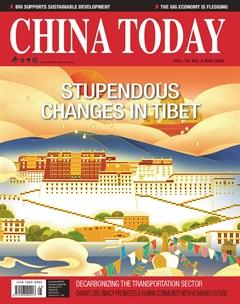China to Cultivate National Industrial Parks Specializing in Processing Trade

China to Cultivate National Industrial Parks Specializing in Processing Trade
The General Office of the Ministry of Commerce recently issued a circular on the application and recognition of national industrial parks specializing in processing trade.
In the circular, the ministry encouraged the relocation of processing businesses to the central, western and northeast regions. The circular also pledged support to these regions in participating in the international economic circulation as a way to boost regional development.
The application mainly targets businesses in Chinas central and western regions, and should be filed by local governments at the municipal level. An industrial park is allowed to have no more than three campuses, and the total planning area should be less than 60 square kilometers, according to the circular.
Regions filing the application need to have at least one competitive industry to drive the agglomeration and development of local industries. They need to have the potential to develop the processing trade industry. Also, they should pair up with the eastern region and undertake the relocation of advanced international manufacturing industries.
China Demands Greater Efforts in Ecological and Environmental Protection in FTZs
The Ministry of Ecology and Environment recently adopted opinions on strengthening ecological and environmental protection in Chinas pilot free trade zones (FTZs) to promote their high-quality development.
Pilot FTZs are an opening-up platform of the highest level for Chinas coastal areas, riverside cities, border areas, and inland areas. To make them more ecologically and environmentally friendly, China will take the following measures.
First, China will make the development of FTZs greener and increasingly low-carbon; and develop green manufacturing, green services, green trade, and green supply chain management.
Second, China will explore new mechanisms and models for pilot FTZs to deepen the reform of government services in terms of environment administration and supervision.
Third, it will give priority to addressing prominent environmental problems. Comprehensive measures will be taken to control ozone pollution, deepen the prevention and control of air pollution from various aspects, and improve the systematic management of water ecology.
Fourth, China will strengthen international cooperation in environmental protection, actively explore a new model of mutual support between environment and trade, and establish platforms for cooperation in ecological and environmental protection.
China to Prudently Push Forward Legislation and Reform of Property Tax
Wang Jianfan, director of the tax policy department of the Ministry of Finance, said recently that China will steadily promote legislation and reform of property tax.
In accordance with the 14th Five-Year Plan (2021-2025), the Ministry of Finance will further improve Chinas modern tax system, improve its local tax and direct tax systems, optimize its tax structure, and establish a tax system conducive to high-quality development, social fairness, and market unity.
First, China will improve its local tax system and foster local tax sources. In doing so, China will grant higher autonomy to provincial taxation authorities through legislation on the premise that the law is made by the central authorities and a certain taxation category can only be levied with the approval of the central authorities.
Second, China will improve its direct tax system with income tax and property tax as the mainstay. It will gradually increase the share of direct tax in total tax revenue, and give full play to the role of direct tax in raising government revenue, adjusting income distribution and stabilizing the macro economy. China will also actively and prudently advance legislation and reform on property tax.

